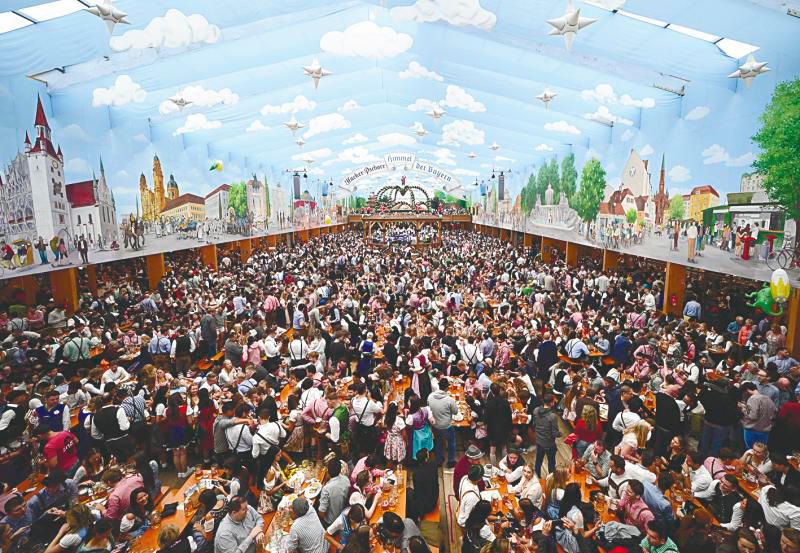IF your community has been able to maintain a lifestyle going back 70,000 years, will that not qualify you to be a champion of sustainable living?
The hunter-gatherer Orang Asli communities in Peninsular Malaysia can be genetically traced back to a historic migration from East Africa to the rest of the planet 70 millennia ago.
As their spiritual and religious traditions are based on the Book of Nature, these forest Orang Asli are Malaysia’s best role models of natural living. However, in addition to having knowledge of medicinal plants, they also possess the antidote to dissolve political mistrust between non-Asli Malaysians.
Malays and other Malaysians, Muslims and non-Muslims can learn from the Orang Asli to share, collaborate, identify commonalities, seek conciliation rather than confrontation and live healthily in accordance with the rules of nature.
Healthy living seems to be a dream as more than half of Malaysians are obese or overweight. Under Budget 2023, the Health Ministry was allocated RM36.3 billion but the money was spent largely on public hospitals, medicines and expenses to treat the sick.
Public hospitals are overcrowded with high patient loads, and the queues are like traffic jams. Beds are running out in private hospitals, too. Economic losses from sickly lifestyles have been estimated at RM100.79 billion.
With little expenditure or political will to enforce preventive healthcare, hospitals will certainly become the second home of most citizens.
As it is, one in five persons in Malaysia has diabetes. The percentage among Malays is approximately equal to their percentage of the population, the percentage among Indians is twice as high while among the Chinese, it is about 15% less than their population percentage. However, many Chinese and Indians are stricken by alcohol-related liver disease.
Some politicians during the Oktoberfest month turn alcohol into a battle line.
A week ago, one senior politician stated that some non-Muslim tourists in Langkawi had claimed that they were not allowed to drink alcohol. It is not clear what was the issue.
Buddhism rejects intoxification completely as stated in the injunctions: “You shall drink no maddening drink” (Cakkavatti-Sihanada Sutta 62-6), and “Let the householder who approves of this dharma not give himself to intoxicating drinks” (Sutta-Nipata, Kulavagga, Dhamikasutta 23-24). Six dangers are listed: loss of wealth, increase in quarrels, susceptibility to disease, loss of good character, indecent exposure and impaired intelligence (Sigalavoda Suttanta 182:7).
One Hindu scripture, Srimad Bhagavata, cautions: “In Soutramani Yaga, what is ordained is only smelling of liquor, not its drinking” (Vol 4, Skandha XI, Ch5 v13).
The story of Jesus turning six pots of water into wine at a wedding banquet is often cited as evidence that Christianity permits drinking, but the use of water to make wine suggests dilution of the alcohol content.
Some ancient wines had lower alcohol content than modern wines as wine was often mixed with water before consumption to dilute its strength.
The overall biblical context suggests low-alcohol wine, for it is said: “Wine is a mocker, strong drink is a brawler, and whoever is led astray by it is not wise” (Proverbs 20:1).
However, as a health tonic, the Bible recommends light drinking. “No longer drink only water but use a little wine for your stomach’s sake and your frequent infirmities” (Timothy 5:23).
If we want a healthier nation with healthier politics, we need to turn sore points that divide Muslims and non-Muslims into touchpoints that will unite them.
Malaysians have fallen well behind the sparkling trend of de-alcoholising liquor because there is no political, business or religious drive to upgrade the health content of food and beverages.
Germany, the land of the Oktoberfest beer festival, which is also popularly celebrated in Malaysia, is getting rid of the alcohol from beer. You can have as much cheer with non-alcoholic or low-alcoholic brews containing less than 0.5% alcohol.
The main dietary role of alcohol in liquor is to provide aroma and flavour. With the latest techniques and technology, it has become doable to produce non-alcoholic beers, wines and spirits with similar tastes, flavours and aromas as the alcoholic varieties.
Sales of booze-free liquor are doubling in Germany and rising all over Western Europe and America. In addition to 0.0 Bitburger, Germany is also producing alcohol-free Riesling wine – to name just two labels in a rising “no and low alcohol” movement – driven by greater concern for planetary and personal health.
Malaysians stay out of this movement because of consumer attachment to the psychoactive effects of alcohol. That is to say, alcohol produces psychological and physiological effects that put you in a state of relaxation and euphoria. That is why alcoholic drinks are prominent at Chinese weddings.
Regular liquor, with a moderate and high percentage of alcohol by volume, can make you intoxicated whereas “no or low alcohol” liquor does not. When you consume regular liquor daily or frequently, you are likely to get liver disease, heart disease, stroke, stomach ulcers, pancreatitis, pneumonia, brain damage, cancer, depression or post-traumatic stress disorder.
Of all regular liquors, wine is the only one with proven health benefits, especially when consumed at meals. A chemical known as resveratrol in red wine helps rejuvenate old cells, thus helping people to age better without degenerative problems. The Bible is wise in recommending “a little wine”.
Regular liquor is also linked to sexual violence.
It is time for the government to compel the liquor industry to push “no and low alcohol” varieties by giving manufacturers, importers and retailers no choice but to achieve sales targets. Set a target of 33% of overall sales for de-alcoholised spirits, such as whiskey, 25% for de-alcoholised beer and 10% for de-alcoholised wine, with incentives for achievement and punitive measures for failure.
An interfaith forum held in Selangor on Malaysia Day was a missed opportunity. Instead of talking about the common aspiration for a more civil society, the panellists should have proposed a common platform to work for urgent improvements, such as upgrading the health of Malaysians, in line with scriptural teachings and the Orang Asli’s Book of Nature.
Coming to obesity and diabetes, researchers have found that hunter-gatherer tribes, like the Orang Asli, are never overweight, and diabetes is unknown among them.
While modern lifestyles are sedentary and our diets are heavy on meats, carbohydrates and sweet drinks, the forest people consume fewer calories, with their unprocessed diet and low meat intake.
The writer champions interfaith harmony. Comments: letters@thesundaily.com














